
White Zombie was an American heavy metal band that formed in 1985. Based in New York City, they started out as a noise rock band, releasing three EPs and one studio album in that style before changing to a heavy metal-oriented sound that broke them to the mainstream. The albums La Sexorcisto: Devil Music Volume One (1992) and Astro-Creep: 2000 (1995) established them as an influential act in groove metal and industrial metal, respectively. Their best-known songs include "Thunder Kiss '65", "Black Sunshine" and "More Human than Human". The group officially disbanded in 1998. In 2000, White Zombie was included on VH1's 100 Greatest Artists of Hard Rock, ranking at No. 56.
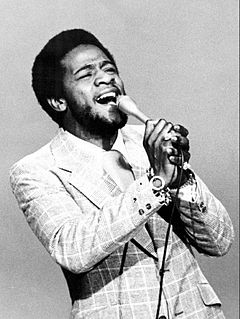
Soul music is a popular music genre that originated in the African American community throughout the United States in the 1950s and early 1960s. It combines elements of African-American gospel music, rhythm and blues and jazz. Soul music became popular for dancing and listening in the United States, where record labels such as Motown, Atlantic and Stax were influential during the Civil Rights Movement. Soul also became popular around the world, directly influencing rock music and the music of Africa.
Industrial music is a genre of music that draws on harsh, transgressive or provocative sounds and themes. AllMusic defines industrial music as the "most abrasive and aggressive fusion of rock and electronic music" that was "initially a blend of avant-garde electronics experiments and punk provocation". The term was coined in the mid-1970s with the founding of Industrial Records by members of Throbbing Gristle and Monte Cazazza. While the genre name originated with Throbbing Gristle's emergence in the United Kingdom, artists and labels vital to the genre also emerged in the United States and other countries.
Industrial Records is a record label established in 1976 by industrial music and visual arts group Throbbing Gristle. The group created the label primarily for self-releases but also signed several other groups and artists. The label gave a name to the industrial music genre.
Blue-eyed soul is rhythm and blues and soul music performed by white artists. The slang, coined in the mid-1960s, was invoked by music magazines in the 1960s such as Life who used it for the Righteous Brothers, Barry McGuire, Sonny & Cher; other times it meant style and mannerisms associated with soul music sung by white musicians. Though many rhythm and blues radio stations in the United States in that period would only play music by black musicians, some began to play music by white acts considered to have "soul feeling" and their music was then described as "blue-eyed soul."

Clock DVA are an industrial, post-punk, and EBM group from Sheffield, England. They formed in 1978 by Adolphus "Adi" Newton and Steven "Judd" Turner. Along with contemporaries Heaven 17, Clock DVA's name was inspired by the Russian-influenced Nadsat of Anthony Burgess's A Clockwork Orange. Dva is Russian for "two".

Bradley Edward Delp was an American singer and songwriter, and lead vocalist of the rock bands Boston and RTZ.
John Valentine Carruthers is an English musician, guitarist, and composer. He is mainly known for being a member of Siouxsie and the Banshees from mid-1984 until early 1987.
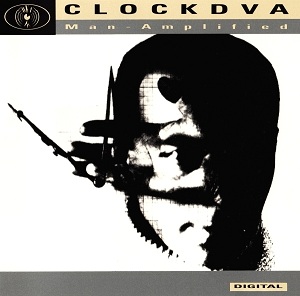
Man-Amplified is the fifth studio album by Clock DVA, released in 1991 by Contempo Records.

Vice Versa is an electronic band that formed in Sheffield, England. Vice Versa originally consisted of Stephen Singleton, Mark White, Ian Garth, and David Sydenham, the former two of whom would go on to later found the successful 1980s pop band ABC. The band was active from 1977 to 1980 with the aforementioned line-up, and reformed in 2015 without Garth and Sydenham. Vice Versa are considered one of the "Big Four" late-1970s minimalistic electronic/synth-based bands from Sheffield. They share this title with Cabaret Voltaire, Clock DVA and the Human League.

Thirst is the second studio album by English post-punk band Clock DVA. It was released on 24 January 1981, through record label Fetish. Soon after the album's release, this incarnation of the band would split up, with several members going on to form The Box with singer Peter Hope.

Advantage is the third studio album by Clock DVA, released in 1983 by Polydor Records. Singles from it were "Breakdown" and "Resistance". A video was filmed for the song "Resistance", directed by Peter Care.

Buried Dreams is the fourth studio album by Clock DVA, released in 1989 through Wax Trax! Records. Some of the tracks feature audio samples from the film Klute. The album peaked at #61 on the CMJ Radio Top 150.
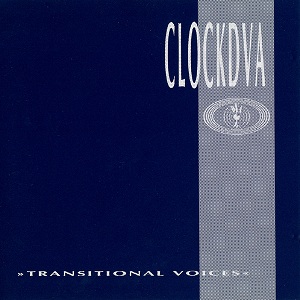
Transitional Voices is a live album by Clock DVA, released in 1990 by Interfisch Records.

Digital Soundtracks is the sixth studio album by Clock DVA, released on 11 December 1992 by Contempo Records. "E-Wave" is dedicated to Klaus Kinski.
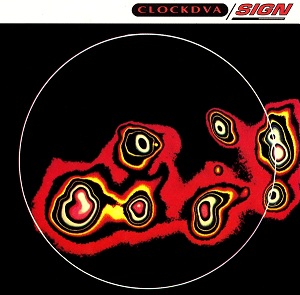
Sign is the seventh studio album by Clock DVA, released on 3 August 1993 by Contempo Records.

Collective is a box set, containing three CDs, by Clock DVA, released on August 3, 1994. It was first issued through Hyperium Records as a three-disc set. After the 1,000 pressings were sold, it was re-issued as a single disc through Cleopatra Records.
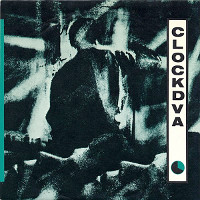
"4 Hours" is a song by the English post-punk band Clock DVA. It is the only single released in support of their second album Thirst.
Passions Still Aflame is an EP by Clock DVA, released on 26 May 1982 by Polydor Records.
"Breakdown" is a song by the English post-punk band Clock DVA. It was the second single released in support of their third album Advantage.













